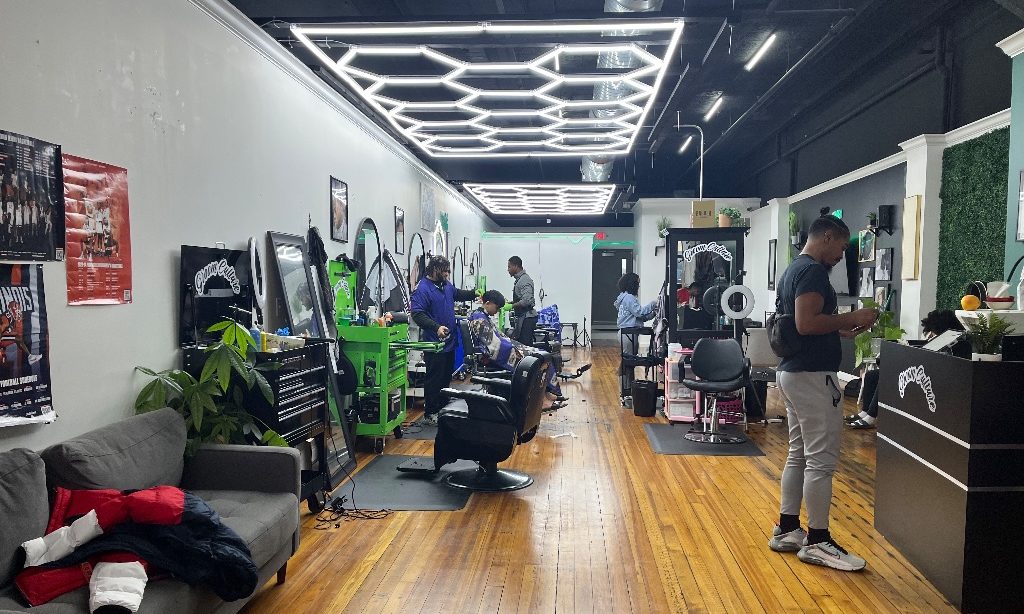Malik Dillard started Groom Culture knowing he wanted it to be a familiar but unique atmosphere. By combining his experience from management jobs and college, he has created a place that feels like you’ve just walked into a big city salon, right here in Champaign. Dillard is young, but he has an intensity and focus when he talks about his business that is palpable. I met with him at Groom Culture to chat about his design aesthetic, inspiration, and why he likes the challenge of being patient.
This interview has been edited for length and clarity.
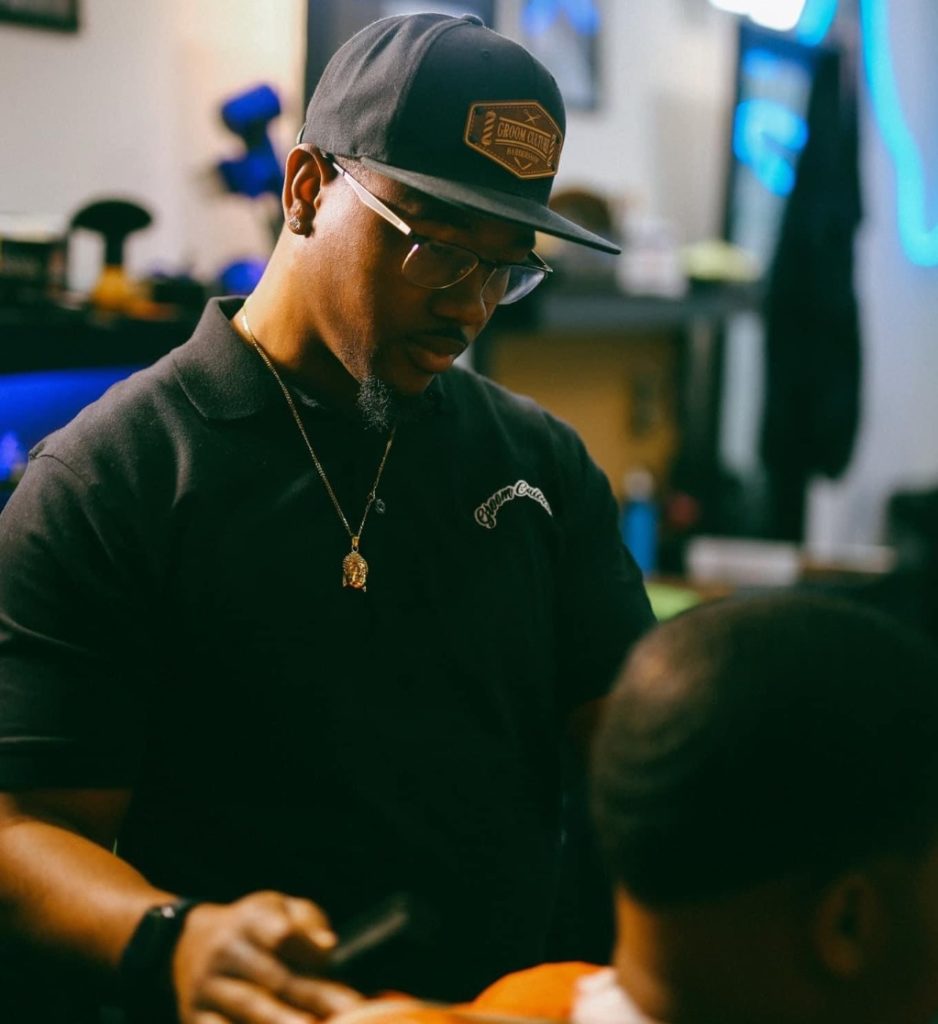
Smile Politely: Where did the idea to open a barber shop come from?
Malik Dillard: It was kind of just a natural progression; I’ve been doing [hair] since I was about 13 or so. I realized it was a legitimate career field and I decided to prepare myself to open the shop and seek out the the management experience. I worked under someone else at their shop and monitored the way they ran things.
SP: Why did you decide to open your business in Champaign?
Dillard: I have three children here. Then I started cosmetology school in town. Since [Champaign-Urbana is] a college town, it’s a revolving door of students coming in and out. As long as I’ve been here the University of Illinois and Champaign-Urbana has done nothing but grow in size and infrastructure. So I figured, if I stay, I can be a kind of pioneer and maybe ten years from now, things will be a lot more fast paced here. And by that time, we’ll probably have been here 15 years or so.
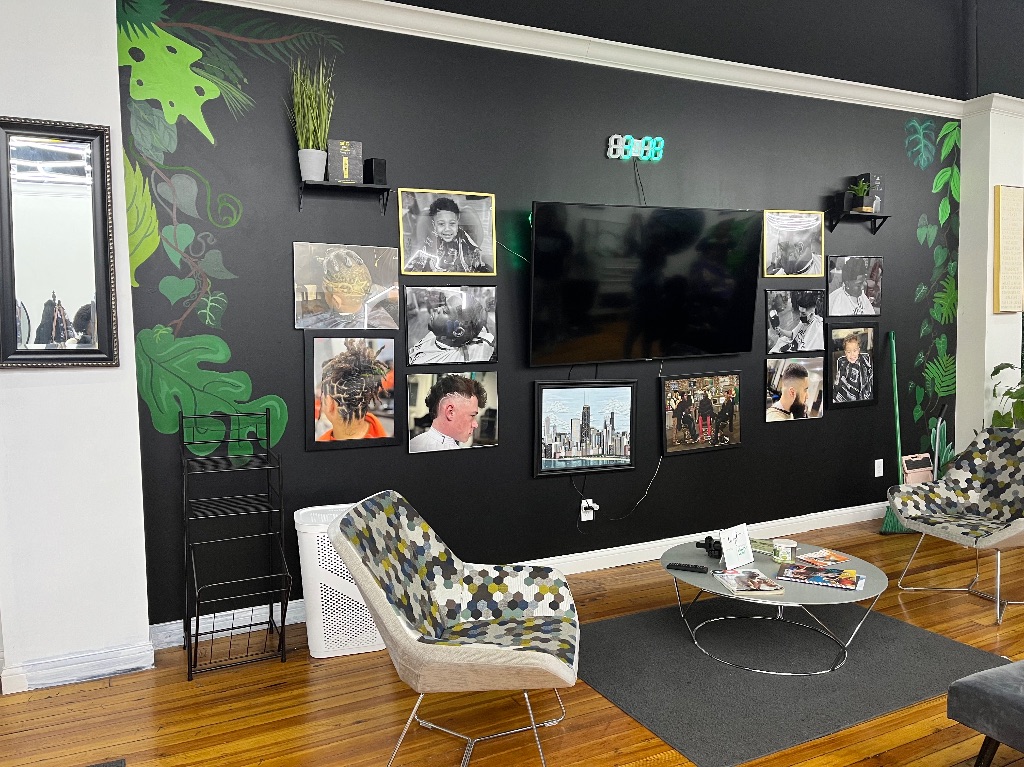
SP: It seems like your barbershop has its own unique style. Can you talk a little bit about that?
Dillard: Yeah, so the feng shui way of things comes from me working out of my house for so many years. I would always set up in my living room or anywhere that was easy to clean up the hair. There would usually be a TV, chairs, and a living room setting with my barber chair off to the back. A lot of people actually didn’t mind coming into my house because of the way I had it set up. So I wanted to take that same atmosphere and bring it into a public space. Because sometimes, if you’re not a regular at other barber shops, it can be kind of cold because no one knows who you are. Or everybody’s assuming that you’re the client of somebody else. So it’s kind of like everybody’s just minding their own business. I wanted to break that stigma and make our shop a much more welcoming environment, a more comfortable environment. Somewhere you can be at home.
SP: It’s a pretty modern space too.
Dillard: I do like the modern side, I wanted it to feel more like Chicago. In college, I made an attempt at being an architect. I actually took some classes at the U of I and did really well in them, but the prerequisites to get into the major kicked my butt. So I decided to do something else and shifted over to something where I could apply the framework and make it work for me. But I do like the design component.
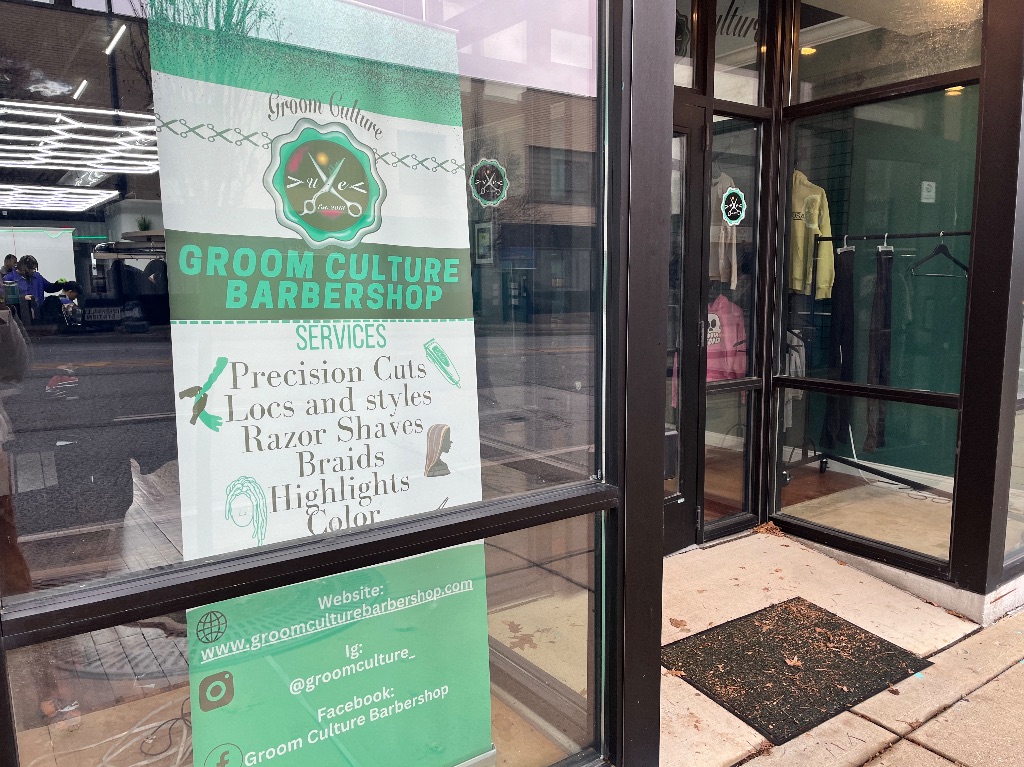
SP: Barbershop culture is almost always portrayed as family. Do you find that’s true here?
Dillard: I take that part very seriously because I want to do business with people I trust and have relationships with. I really enjoy the relationship side of things. So I definitely treat this like a family. We try to go out together as much as we can and I like us to be identifiable, so when we go to the basketball games we’ll have our green and orange stuff on. I like to take their input. I’ll tell them, “Hey, I’m thinking about doing this, what do y’all think?” So that way I feel like I’m making the best decision. I got feedback but they also got to get a say, they feel important, and they know for a fact that they are a part of the success, which in return reinforces their loyalty.
SP: What is your favorite place in C-U?
Dillard: When we head out we go to Esquire for wings and they have those really good slushes. I really enjoy those.
SP: What are the best and worst parts of owning your own business?
Dillard: The best part is definitely the people you meet and the people that you get to impact. There’s a lot of unique ways to connect with people through the barbershop. Whether it’s mentoring, teaching, or sponsorship, we do all types of stuff to get involved with the community. That way, it’s a two way street. We’re giving some value but we’re also receiving the value in terms of getting our name out there and being known for being a family friendly business.
The hard part is just keeping up with the growth. There are so many things that I want to add and implement, but I can only do so much with the resources that I have. It’s not always easy navigating the grant space. So I tend to just use my own money. I reinvest a lot of dollars, after personal bills and things. But usually, any profits just go right back into the business. We’re only in year three; we spent two years on Green Street, and then we had to move because there was a change of ownership over there. The prices changed and we moved to a new location. We had to put a lot more money into it versus if we were in year three over there, we would have started to see profits this year. So we’re pretty much starting all the way over. And since then we grew into our bigger location, doubled the staff and the profits are coming. You don’t always get to see the profits right away, it’s always like planting trees: they don’t grow fast and you just got to have a lot of patience. Sometimes, that can be uncomfortable. And while I brought it up as a negative, I like the battle. It makes everything worth it once it starts to play out.
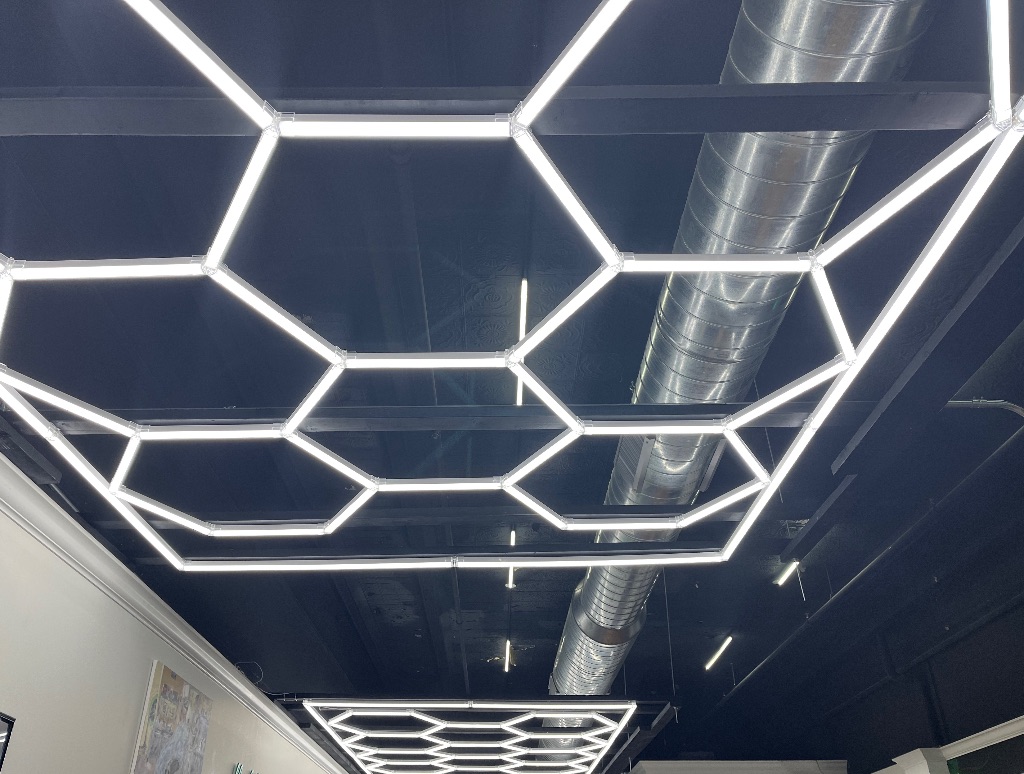
SP: What kind of work did you have to do with the new space?
Dillard: The only thing that was done was the black ceilings, band lights. We had plumbers and contractors build the room for our esthetician. They put in a water heater, and we had to modify the outlets a little bit because they weren’t putting out enough amperage. So if more than one person was using blow dryer it shut the lights off. We found that out shortly after we started working and we had to cut into the walls. So there were a lot of surprise expenses.
SP: Do you have a certain clientele? From Instagram, it looks like your clients come from all over.
Dillard: Definitely, we like to target a more diverse crowd. And we try to show our range of skill sets to attract more people. We see a lot of people who are going to grad school, people from overseas, and people from different states. I like to form relationships with people and kind of pick their brains based on their expertise. Sometimes I’ll give them ideas from my point of view. I really like people that have a story and that come from somewhere different that I’ve never been. I have access to information that I may not have been able to access if I didn’t meet them.
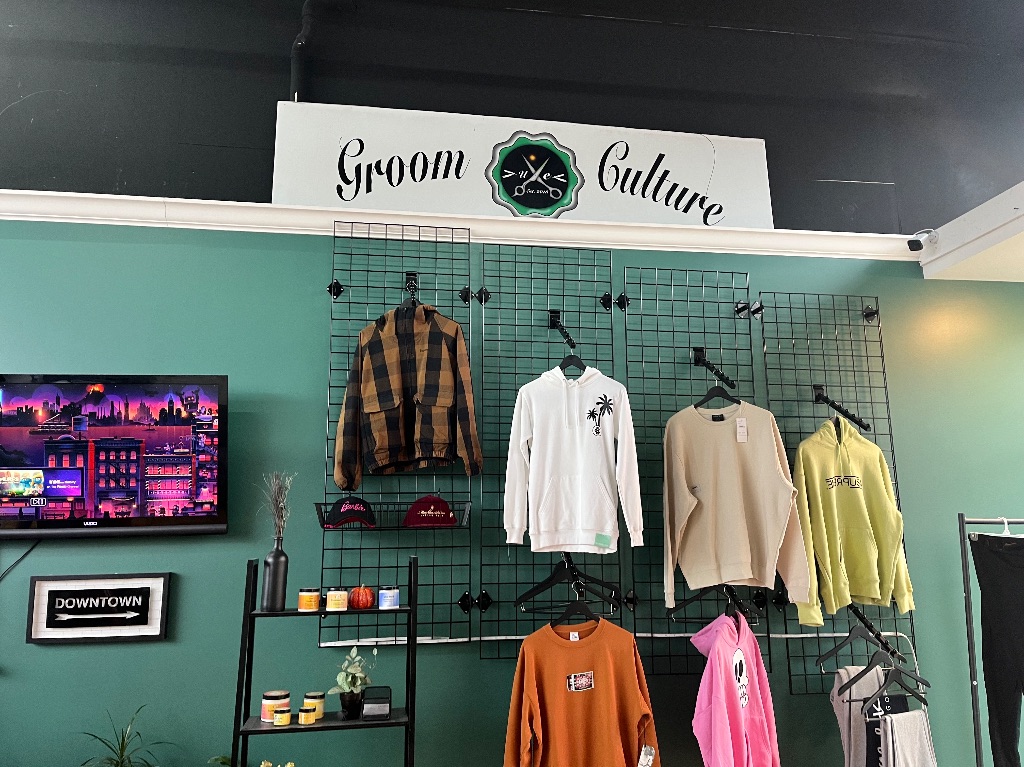
SP: What would you say is your main form of marketing?
Dillard: Word of mouth. I don’t think anything ever beats word of mouth. I mean, we’re used to being advertised to, but when somebody you trust recommends a cool place, it’s different. That works a lot better. I’ve had people tell me that they bet their friends $100 saying, “Go there and they’ll get you right, and if they don’t, I’ll give you $100.” So that’s a lot of confidence in me. But yes, power the word of mouth it’s always the best.
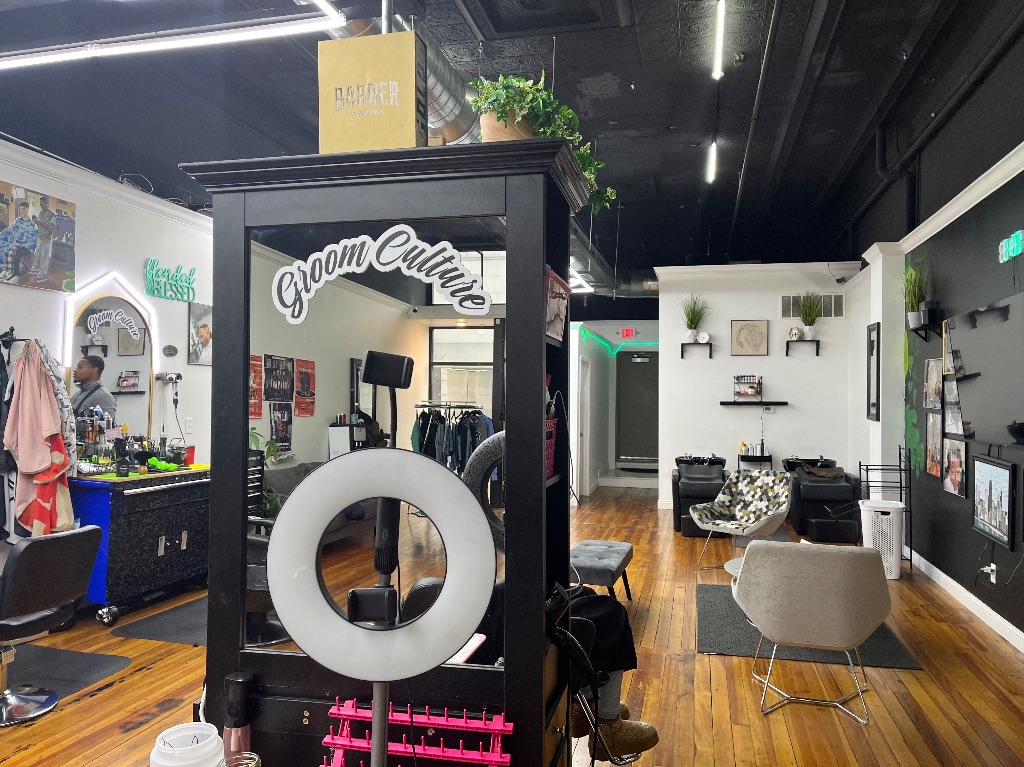
SP: As a business owner and specifically a Black business owner, what drives you?
Dillard: Being a Black business owner. There’s definitely a certain demographic of people rooting for me, just because they feel it would be more success for everyone. I can give back in terms of giving advice and sharing my perspective and the way I look at things. I try to share it as much as I can from the day to day operations to the setbacks. I want to show that it’s all a part of it. Success doesn’t mean that you just continue to go whether you fail or succeed.
I have always just been a dreamer. So I wanted to be a resource for people. I think that’s where I get the pride of it all. To surpass my own expectations. Some people can, if they were in my position right now, they could say they made it. But I see a lot more. I want to keep pushing. We’re on our second shop, and we’re better for it. A lot of people are inspired by what we have going on and I want to continue to do it because that makes me feel like I’m leaving the world better than I found it.
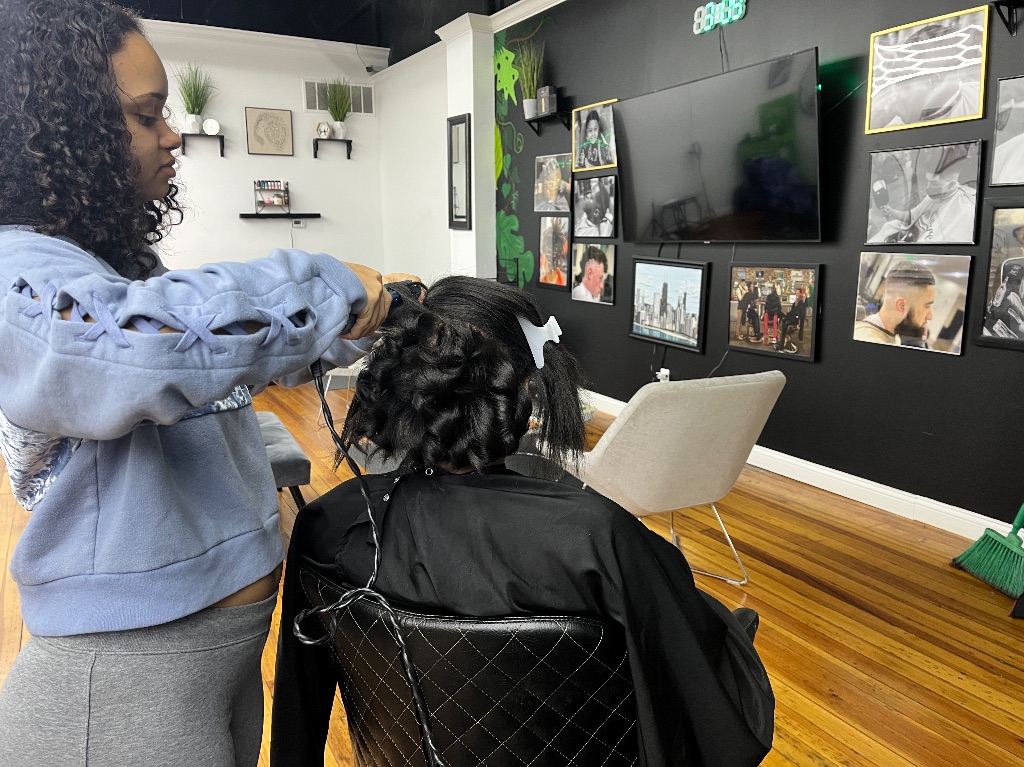
Groom Culture
112 E University
Champaign
T-Sa 10 a.m. to 7 p.m.








